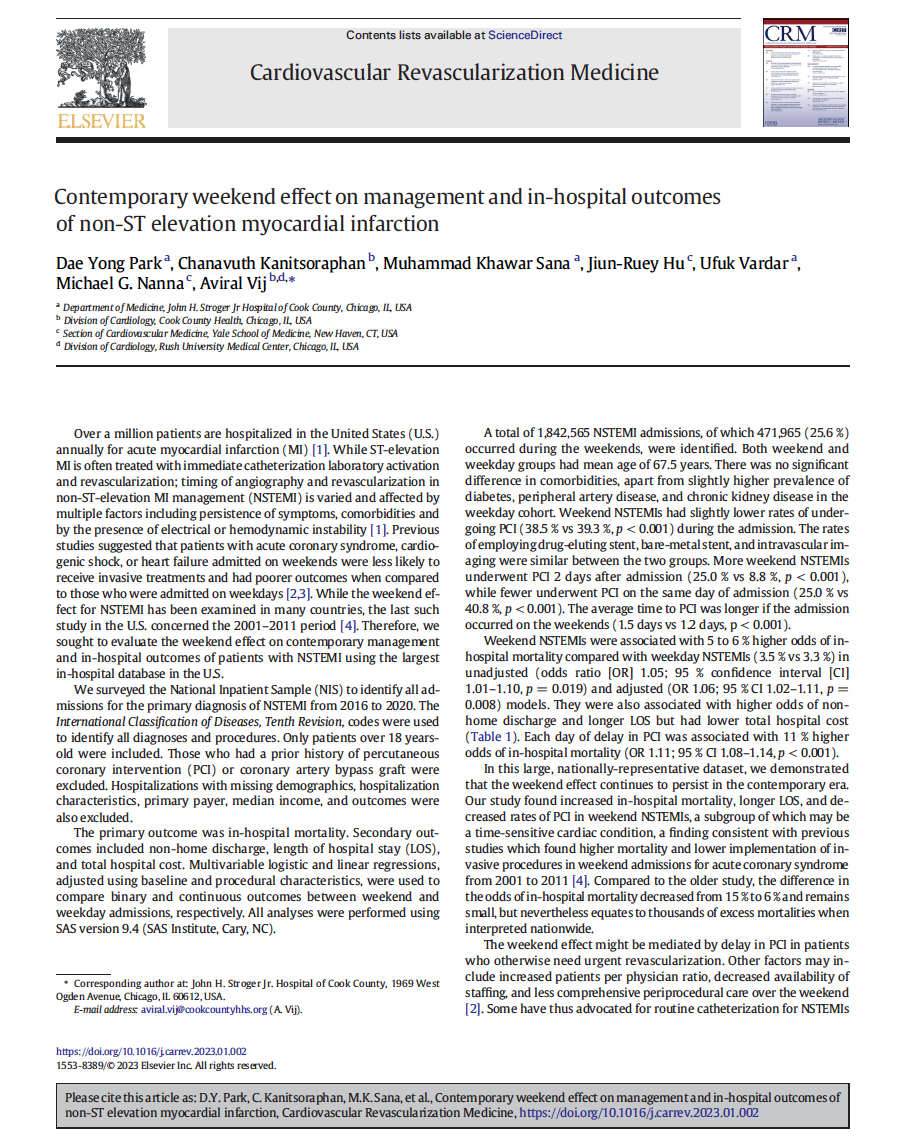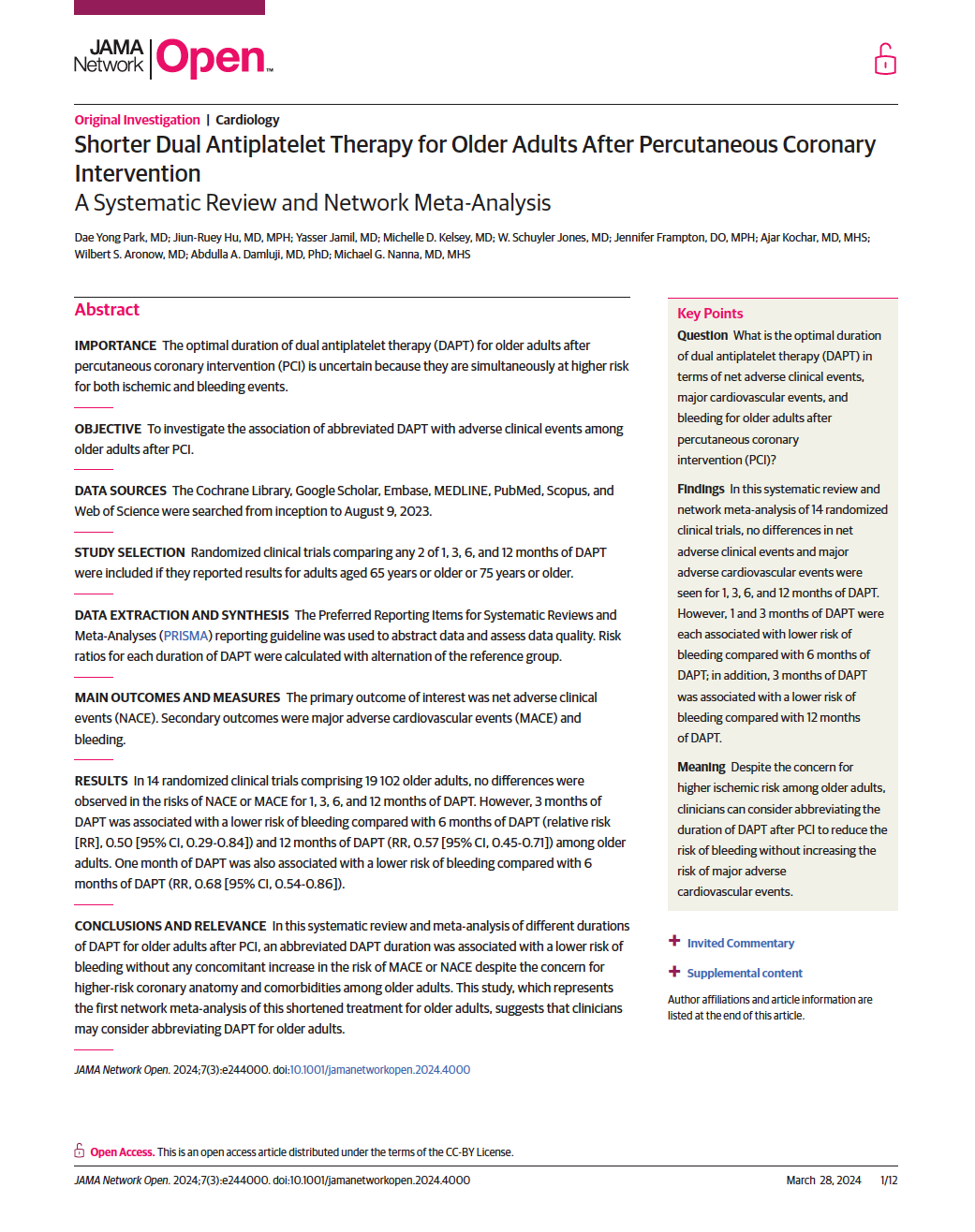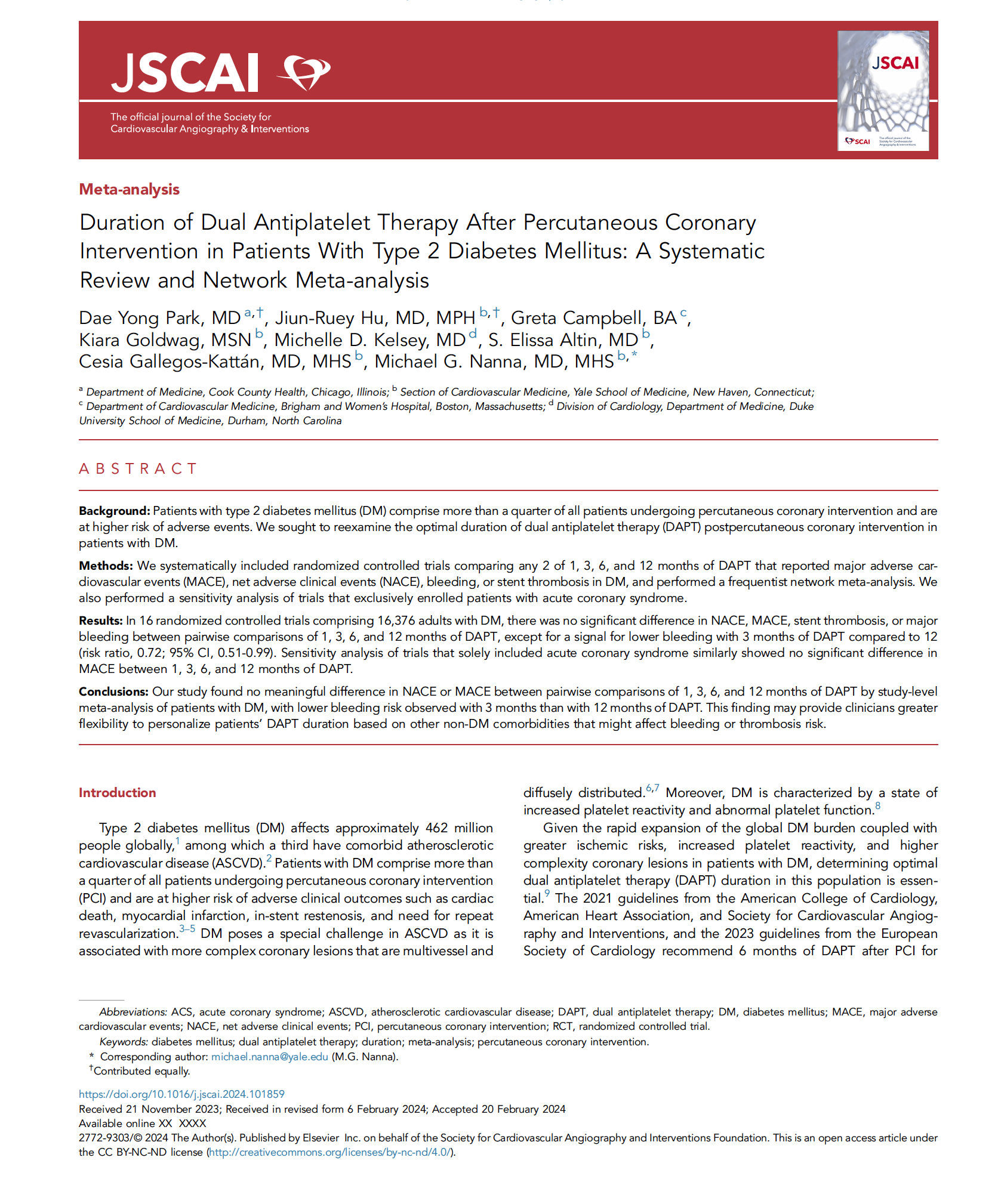📝 Abstract
Over a million patients are hospitalized in the United States (U.S.) annually for acute myocardial infarction (MI). While ST-elevation MI is often treated with immediate catheterization laboratory activation and revascularization; timing of angiography and revascularization in non-ST-elevation MI management (NSTEMI) is varied and affected by multiple factors including persistence of symptoms, comorbidities and by the presence of electrical or hemodynamic instability. Previous studies suggested that patients with acute coronary syndrome, cardiogenic shock, or heart failure admitted on weekends were less likely to receive invasive treatments and had poorer outcomes when compared to those who were admitted on weekdays. While the weekend effect for NSTEMI has been examined in many countries, the last such study in the U.S. concerned the 2001–2011 period. Therefore, we sought to evaluate the weekend effect on contemporary management and in-hospital outcomes of patients with NSTEMI using the largest in-hospital database in the U.S.


